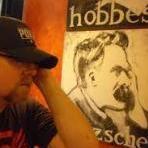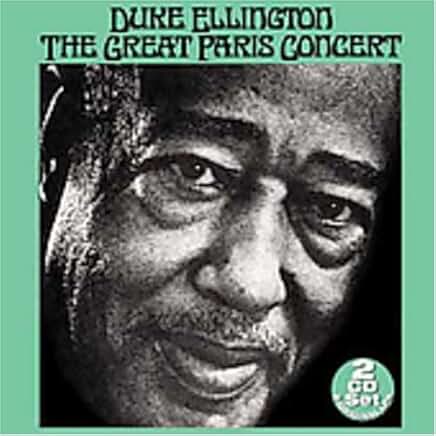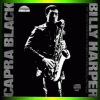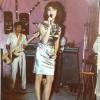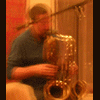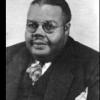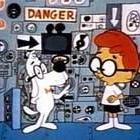All Activity
- Past hour
-
I've been playing guitar since around 1968 and I'm pretty familiar with guitar blues licks and all that. Not that I am any great shakes after all these years. I think what is really going on here is Iommi has a sound, that metal electric guitar sound, and was a pioneer with this sound. I will certainly go that far - he is good at that sound and a certain rough-hewn attitude in his playing. But that sound is mostly settings on the guitar, amp, and perhaps some signal processing devices in the chain. If you took off all the amplification and distortion and whatnot and he just played the same thing on an acoustic guitar, there would be very little to it. I can in most cases easily play the pentatonic riffs he is playing. These guys are not famous for beautiful melodies, musicality, or memorable lyrics; they are famous for a kind of melodic and rhythmic minimalism coupled with a loud, vaguely menacing, sound, along with campy showmanship and costumes... IMO.
-
Can't agree more when it comes to translations. Martin Heidegger's Being and Time is a pinnacle example. This translation, which Heidegger did not assist the translaters is notoriously misunderstood because Heidegger wrote in this extinct German dialaect, which comfounded a translation for nearly 30 years, when this translation was finished in 1960: Finally in the 1970's shortly before his death in 1976, Heidegger assisted Joan Stambaugh to retranslate Being and Time in what I believe is the definitive edition.
-
...is a juggernaut. Like Kant's Critique of Pure Reason, I had to live with this book for years (under the direction of Tom Rockmore no less!) to truly understand what is being said. Like Kant, Peirce, Aristotle, Heidegger, Husserl, I had to live with Hegel, to understand Hegel.
-
❤️ 👍
-
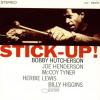
What Classical Music Are You Listening To?
HutchFan replied to StarThrower's topic in Classical Discussion
-
Yes, he speaks about Django in this interview.
- Today
-
Tony's playing was blues based and thus was typically rooted in blues and pentatonic scales and their various boxes/patterns. And you are right about to each your own, but I think that to dismiss Tony's pentatonic riffs as "simplistic" sells him short as a guitar player and reinforces the "snooty" label that is associated with many jazz aficionados. To cite players from other genres as influences need not mean that they can be overtly heard in copped licks or whatever. Django Reinhard was an influence because Tony lost the fingertips on his left hand in an industrial accident. Thus Reinhardt was an inspiration in helping Tony to believe, and figure out a way to overcome an obstacle which would have stopped most in their tracks. Another pentatonic/blues based player who comes to mind is Johnny Winter. As with many jazz musicians, he had an endless well of licks and ways to twist and turn those "simplistic scales" into statements with as much value and feeling as those of Coltrane, Miles, et al. I would also add that the technical proficiency that Tony and Johnny, and countless others, apply to their simplistic "simplistic pentatonic riffs" embodies it's own sort of magic. I don't know if you're a guitar player, if so I encourage you to sit down and learn a couple of their solos note for note. On a separate note, listen to the album "Sabbath Bloody Sabbath." That record found the songwriting and arrangements operating at a different level. It's not likely to convert you but could certainly be worth forty minutes of your time. In my opinion they are both monsters in their own right and we will clearly have to agree to disagree on this. Ah, the subjectivity of art and music. Respectfully submitted.
-
-
What Classical Music Are You Listening To?
Peter Friedman replied to StarThrower's topic in Classical Discussion
-
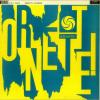
Noirish, Pulpish Standards and Substandards
SMB1968 replied to Teasing the Korean's topic in Recommendations
How about the new Adam O'Farrill album For These Streets? Not standards, but a noir-inspired suite. -
I saw him twice, once in the 70's at Keystone Korner (that spectacular triple bill, Hutcherson's quintet along with Max Roach's quartet featuring Billy Harper/Reggie Workman, and Dexter Gordon playing with Eddie Henderson and Hutcherson's rhythm section of Cables/Leary/Marshall), and in 1988 at an outdoor concert at Penn's Landing in Philly, a quartet with John Hicks. Spectacular both times.
-
-
How was the performance?
-
I recollect seeing him live three times in the 1980s, and once in the 1990s. The first time was at Lush Life in New York (relatively short lived sister club to Sweet Basil). The audience was small, and in between sets I spent the break chatting with him. He seemed a little depressed. I also saw him leading a quartet at the Caravan of Dreams and with the Timeless All Stars at the 1987 New Orleans Jazz and Heritage Festival. The last time was at the Village Vanguard, in 1998. That was incredible; I was in the front row, directly in front of him, and he had his vibes and marimba lined up in a continuous row.
-
The bookshop sold its copy of the recent (Grasse) book, so I can't research further.
-
Getting near the turn of the calendar, so I just did a quick look at the thread. Looks like the following have been ID'd (apologies if I've miscredited these, but went with first I saw): track 1 @clifford_thornton track 2 @Milestones track 3 only Jerome Richardson has been ID'd. track 4 NOT IDENTIFIED track 5 @JSngry track 6 @felser@T.D. track 7 @JSngry track 8 @JSngry track 9 @felser@webbcity@JSngry track 10 Song has been identified, but not the artist. track 11 NOT IDENTIFIED track 12 @Milestones track 13 @JSngry Happy hunting!
- 39 replies
-
- blindfold test
- bft256
-
(and 1 more)
Tagged with:
-
Hentoff never attempted to tell us how to listen to Mingus or what to hear or, … , tell us how to feel. What he did do, however, was to make us aware of the complex nature of one of the giants of twentieth century American music, which, for many, served to appreciably enhance the listening experience as we made the connection between a composer, his creation and his performance.” - Steve Siegel https://jazzprofiles.blogspot.com/search?q=black+saint
-
I suppose whatever music people were dancing to in high school burns a particularly deep impression in one's mind. But it is possible to overcome this sort of bias. In my case the music that came out in high school was the Beatles, Stones, etc. And I really liked all that very uncritically at the time but later on it occurred to me that quite a bit of what the Beatles put out, for example, was dreck.
-
Speak Like A Child, The Prisoner, Empyrean Isles Saw Herbie last night
-
Back in the mid to late 70s I thought Iommi was the guitarist for HM simply because he wasn't a shredder, he didn't relu on speed and endless arpeggios like some of the players who came in his wake. To me his playing is about presence, depth and heft but I'm no musician so can't give a technical analysis, just a listener and that does me just fine But repetition and simplicity aren't necessarily negative attributes. I suspect your conclusion is correct, this music is simply not to your taste, that's not a bad thing either. But as this is a thread celebrating one of the universally accepted progenitors of the genre it's really not surprising it features lots of folk who hear otherwise. Each to their own.
-
Yes, I didn't buy these because I seem to have most of them on either cd or downloads.
-
Well, I listened to the first and second tunes on there. There was a little break in between with some acoustic guitar which sounded like a nylon string guitar or three. Call me unimpressed! If you think that is very good guitar playing I envy you because there is so much good guitar playing out there which you can look forward to hearing. The electric guitar sounds nice - authentically metal - but in my view is nothing much musically - simplistic pentatonic riffs and power chords. If this is the best you can come up with for Iommi's playing then I guess I need listen no further. The melody and singing on the first number are absolutely what I was talking about: throwaway repetitive melody and lyrics. To each his own and if this does something for you, great! Does very little for me.
-
Thank you for posting this, I haven't heard it in 45 years and I can hear why my teenage self loved it so much. As to whether Iommi is a good guitarist, I think it's self-evident that he's a great heavy rock player, after all he's fundamental in creating the style, but if you don't like heavy rock guitar playing your never going to get it. The instrumental interlude makes a convincing argument that he could indeed play well outside the genre. That contrast from the interlude into the opening riff is pure musical theatre and genius.
-
In most cases, it looks like the file names indicate the date (year/month/day).
-
It would be nice to know the show dates for Duke Ellington to see how much has already been issued commercially by other labels.
_forumlogo.png.a607ef20a6e0c299ab2aa6443aa1f32e.png)
